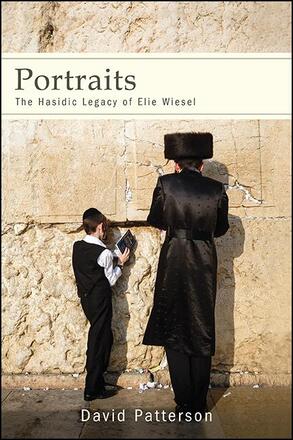
Portraits
The Hasidic Legacy of Elie Wiesel
Alternative formats available from:
Explores Elie Wiesel’s portraits of the sages of Judaism and elaborates on the Hasidic legacy from his life and his teaching.
Description
Elie Wiesel identified himself as a Vizhnitzer Hasid, who was above all things a witness to the testimony and teaching of the Jewish tradition at the core of the Hasidic tradition. While he is well known for his testimony on the Holocaust and as a messenger to humanity, he is less well known for his engagement with the teachings of Jewish tradition and the Hasidic heritage that informs that engagement. Portraits illuminates Wiesel's Jewish teachings and the Hasidic legacy that he embraced by examining how he brought to life the sages of the Jewish tradition. David Patterson reveals that Wiesel's Hasidic engagement with the holy texts of the Jewish tradition does not fall into the usual categories of exegesis or hermeneutics and of commentary or textual analysis. Rather, he engages not the text but the person, the teacher, and the soul. This book is a summons to remember the testimony reduced to ashes and the voices that cry out from those ashes. Just as the teaching is embodied in the teachers, so is the tradition embodied in their portraits.
David Patterson is Hillel A. Feinberg Distinguished Chair in Holocaust Studies at the University of Texas at Dallas. His many books include The Holocaust and the Nonrepresentable: Literary and Photographic Transcendence, also published by SUNY Press.
Reviews
"Through his extensive knowledge of Torah, of Wiesel himself, his writings, and his contemporaries such as Emmanuel Levinas and Martin Buber, Patterson's passionate voice emerges not only as a synthesizer of sources, but as a distinctive contributor to this tradition of commentary, and he enriches our understanding of what Wiesel may have meant by what he said, enigmatic as it often is. It may fruitfully be used as a companion to the study of Torah, in as broad a sense of the term as you like." — Religious Studies